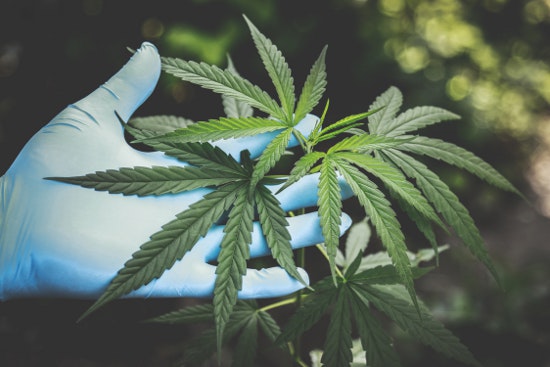Cannabis is a complex, multifaceted, and occasionally contentious plant.
Cannabis contains THC, painkilling properties, and CBD, a chemical that influences the brain and improves its function without making it feel high. Short-path distillation can be used to extract and refine both substances for use. With more people facing chronic health conditions and diseases than ever, many are turning to cannabis as a healthier alternative.
Marijuana contains chemical compounds called cannabinoids, which interact with your endocannabinoid system to help regulate your mood, movement, homeostasis and immune function. More than 100 cannabinoids, organic substances in plants and animals, are present in marijuana. They even appear in people. Endocannabinoids are the cannabinoids that are found in your body and brain. The National Institute on Drug Abuse claims that these substances are essential for reasoning, memory, and sensory perception (NIDA). (1) Tetrahydrocannabinol, or THC, and cannabidiol, or CBD, are the cannabinoids that give marijuana its effects. THC and CBD have different effects on different neurological pathways, affecting how people feel and think. For instance, THC is significantly more psychoactive than CBD, which can alter how your brain views the environment. It is the cannabinoid that causes intoxication or euphoria by acting on the body’s endocannabinoid system. The “high” sensation is caused by THC. CBD doesn’t affect the same neural pathways as other drugs. Researchers think that CBD instead affects the serotonin system in the brain, which controls mood, sleep, appetite, and desire. Instead of changing your perception, it might make you feel calm and relaxed. Additionally, it has less of an impact on physical responses. Each cannabis plant contains different amounts of THC and CBD depending on how it was grown, processed, and stored. A plant’s effects become more vital the more THC it contains.
Thanks to cannabis’ adaptability and utility, particularly in the medical industry, it has entered various sectors and products, including a dispensary near me. Cannabis contains hundreds of different chemical substances, many of which are cannabinoids. Due to the chemical composition of cannabinoids, they have been associated with reducing chronic pain. Because of this, the by-product of cannabis, such as medical cannabis, is frequently used to treat chronic pain. Cannabis comes in various forms, and research on its health advantages continues to expand.
Relieves Pain
Pain is a serious issue, especially for those who suffer from chronic pain. It can be physically painful and lead to insomnia (insomnia), anxiety, a weakened immune system, and other health problems.
Cannabis can help relieve pain for many people. Hemp CBD Oil is also an alternative to opioids, which are powerful painkillers and can be addictive.
THC and CBD work to change the way receptors in the brain receive pain signals, thereby reducing inflammation. This can be particularly useful in treating neuropathic pain.
While it is practical, too much THC can increase a person’s pain and make them nauseous or sleepy. This is crucial to take your dose gradually and in small amounts. Cannabis can relieve a wide range of pain symptoms. This includes nerve pain, fibromyalgia, and arthritis.
THC and CBD both interact with pain receptors in the brain to produce a feeling of well-being and relaxation. These cannabinoids also reduce inflammation.
Pain is a complicated experience for most people, and finding a pain medication from dispensary elizabethnj that works best for you can be helpful. However, research shows that cannabis can ease the pain you feel, whether it is from an accident or disease.
Aids in Weight Loss
Marijuana is a plant that contains numerous cannabinoids, including THC, CBD and THCV. These cannabinoids have varying effects on the human body. Other names for marijuana include pot, weed, grass, and ganja. The drug made from the cannabis plant is known as marijuana; cannabis is the plant’s botanical name. Marijuana is smoked, whereas cannabis is grown. Although many contend that marijuana’s highs are no more intense or harmful than those caused by alcohol and do not lead to addiction in the same way that heroin or cocaine do, federal law still makes marijuana illegal in the United States. However, some states, like California, have legalized the use of marijuana by citizens for recreational or medical purposes.
Our endocannabinoid system is responsible for regulating energy, appetite and metabolism. It works through receptors called CB1 and CB2 throughout the human body.
When you consume a high-fat diet, the omega-6 fatty acids found in foods are converted into AEA and 2-AG, which stimulate the CB1 receptors in the body. This overstimulation leads to an unfavorable lipid profile, increased insulin resistance and other metabolic abnormalities linked to obesity.
Aids in the Regulation of Insulin
Regulation of insulin and other substances is essential to maintaining good health. For those who have diabetes, this is especially true.
Cannabis helps improve your body’s response to insulin by promoting blood sugar intake and encouraging the liver to conserve glucose for later use.
It’s also the best way to prevent diabetes-related complications like blindness, heart disease and kidney disease. In addition, it can help you feel more energetic, relieve your pain and aid your sleep.
Fights Cancer
Cannabis has been shown to fight cancer by affecting the body’s natural chemicals called endocannabinoids. These bind to cannabinoid receptors and trigger apoptosis or cell death.
But it’s crucial to remember that studying cannabinoids’ effects on cancer is still in its very early stages. Robust scientific studies utilizing large numbers of participants in a controlled environment must be conducted to determine whether they function safely and effectively.
One of these trials, a glioblastomamultiforme trial led by Professor Susan Short, tested whether Sativex (nabiximols), a highly purified pharmaceutical-grade extract of cannabis, could help control severe cancer pain that doesn’t respond to other drugs. Smoked marijuana is effective in treating nausea and vomiting brought on by cancer chemotherapy in several small studies. A few studies show marijuana can treat neuropathic pain when smoked or vaporized.
Aids in the Management of Multiple Sclerosis
Multiple sclerosis is a chronic, unpredictable disease that affects people differently. As an autoimmune disorder, it is thought to be caused by the body attacking itself.
MS damages nerves in the brain and spinal cord that send signals to the rest of the body. These messages carry information about movement, sight, balance and other vital functions.
In MS, the immune system mistakenly destroys the protective sheath around nerve fibers called myelin. The damaged myelin interrupts signal transmission and cause symptoms.
Aids in the Treatment of Hepatitis C
The hepatitis C virus (HCV) infects the liver and causes inflammation, leading to serious liver problems such as cirrhosis or liver cancer. Treatment can help prevent these complications.
Hepatitis C infections are usually diagnosed after routine blood tests show abnormal liver enzymes. They can also be diagnosed if a person has risk factors for hepatitis C, such as receiving clotting factors before 1987.
People with chronic hepatitis C can be treated successfully using medicines to cure the infection. However, the disease is a serious health concern and requires early diagnosis to prevent severe symptoms.
Stress Relief
Because stress is an inescapable aspect of life, it affects everyone at some point. It’s triggered by events and situations like an upcoming college exam, money problems, or a recent fight with a partner.
However, it can become chronic if we don’t address the problem. That can cause side effects such as insomnia, headaches, digestive issues, and high blood pressure.
The good news is that cannabis can help relieve stress, especially in low doses. A new study published in Drug and Alcohol Dependence found that cannabis helped reduce anxiety in users of both genders.
The researchers examined how the substance affects brain chemicals that manage anxiety and stress. They discovered that a molecule called 2-AG helps create and move these chemicals along a brain path that connects the amygdala and prefrontal cortex.
Better Sleep
Cannabis can be a helpful treatment option, whether you’re trying to reduce chronic pain, treat PTSD, or get better sleep. Studies show that it can improve sleep quality, make it easier for people to sleep, and result in fewer nighttime awakenings.
However, the effects of marijuana on your sleeping patterns may vary depending on the type of cannabis you use and how long you’ve been using it. Some studies have shown that people who stop using cannabis have more trouble sleeping than those who continue.
Marijuana has been linked to improved sleep for both recreational and medical users, although more research is needed. Until more evidence comes out, it is essential to discuss your concerns with your healthcare provider before you start using cannabis as a sleep aid.
Better Lung Function
As the number of medical cannabis patients continues to increase, more and more patients are concerned about the effects of cannabis on their lungs. This is especially true for those who suffer from chronic bronchitis and asthma.
Smoking marijuana has not been shown to cause severe long-term lung damage. In fact, a recent study found that marijuana-only smokers improved their lung function over 20 years and was published in the Journal of the American Medical Association.
More study is necessary, though, to determine why this is the case. One reason may be that vaporizers don’t expose the lungs to the same heat level as combustion.




















